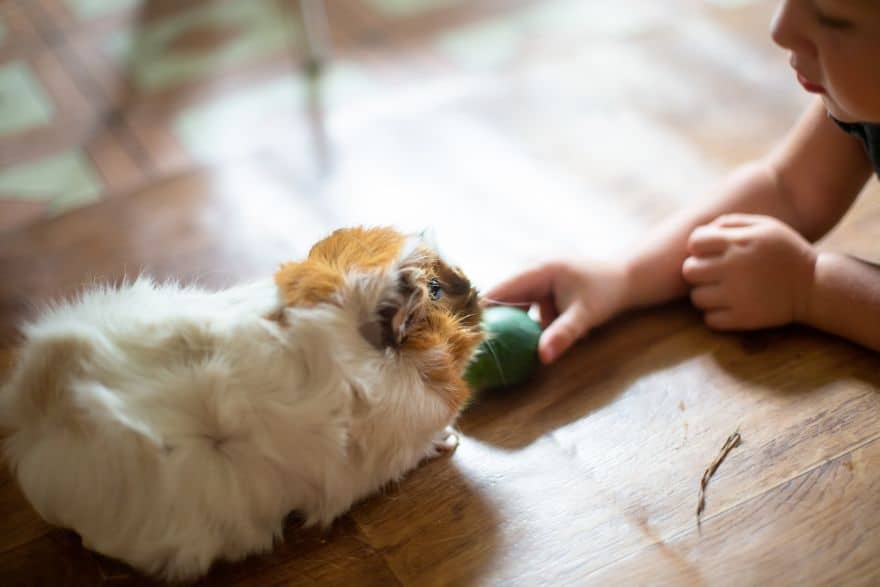Guinea pigs are adorable pets that require proper nutrition to maintain good health. One question that I encounter regularly is, “Can guinea pigs eat melons?”
This question is crucial because offering the wrong food can cause digestive problems or even be fatal for guinea pigs. Therefore, it’s essential to know which foods are safe for them to eat.
In this post, we’ll take a look at a variety of different melons and discuss whether they’re safe for guinea pigs to eat and if they derive any benefit from eating them.

Types of Melons Safe for Guinea Pigs
Guinea pigs can eat some types of melons, including watermelon, cantaloupe, and honeydew. These melons contain high water content, low sugar levels, and are rich in vitamins C and A. Watermelon is also an excellent source of lycopene, an antioxidant that promotes heart health.
While melons are safe for guinea pigs, it’s essential to serve them in moderation. Guinea pigs require a varied diet, so melons should not replace their regular food.
Benefits of Feeding Melons to Guinea Pigs
Melons are a great source of nutrition for guinea pigs. They provide essential vitamins and minerals that promote good health. For instance, vitamin C is necessary for guinea pigs because they cannot produce it themselves. Melons provide a good dose of vitamin C, which helps boost their immune system, promotes wound healing, and prevents scurvy.
Additionally, melons are low in calories, making them an excellent treat option for guinea pigs. They are also high in fiber, which promotes healthy digestion and prevents constipation.
Risks of Feeding Melons to Guinea Pigs
While melons are safe for guinea pigs, they can pose some risks if not served correctly. One potential risk is overfeeding. Melons can have quite a high sugar content which can lead to weight gain in guinea pigs.
In addition, guinea pigs can develop diarrhea or stomach upsets if they eat too much fruit. Therefore, it’s essential to serve melons in moderation and in appropriate portion sizes.
Another potential risk is offering melons with seeds or rind. Guinea pigs cannot digest seeds and rind, which can cause digestive problems or choking hazards. Therefore, it’s crucial to remove seeds and rind before serving melons to guinea pigs.
Serving Suggestions
When serving melons to guinea pigs, it’s best to cut them into small pieces that are easy to chew and digest. Remove the seeds and rind before serving and wash the fruit thoroughly to remove any pesticides or dirt.
It’s also essential to serve melons in moderation. A small slice of melon once or twice a week is sufficient for guinea pigs. Overfeeding melons can cause digestive issues and lead to nutrient imbalances.
Alternatives to Melons
While melons are a safe treat option for guinea pigs, there are other fruits and vegetables that you can offer them. For instance, guinea pigs can eat apples, strawberries, blueberries, carrots, and leafy greens. These foods provide essential vitamins and minerals that promote good health.
It’s crucial to note that not all fruits and vegetables are safe for guinea pigs. Some foods, such as avocado, onions, and garlic, are toxic to guinea pigs and should be avoided.
Conclusion
In conclusion, guinea pigs can eat some types of melons, including watermelon, cantaloupe, and honeydew. Melons are a great source of nutrition for guinea pigs, providing essential vitamins and minerals that promote good health.
However, it’s essential to serve melons in moderation and remove seeds and rind before serving.
Remember that guinea pigs require a varied diet, so melons should not replace their regular food. If you’re unsure about which foods are safe for your guinea pig, consult with your veterinarian for guidance.
- How Long Do American Eskimo Dogs Live? Important Factors and Care Tips - September 29, 2023
- Do American Bulldogs Need Grooming? Essential Tips and Care Guidelines - September 29, 2023
- Do Bengal Cats Enjoy Playing? Essential Tips for Keeping Them Active - September 29, 2023